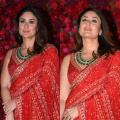Analysing Movie Trends: Filmmakers and their exclusivity to theatres, the need of the hour
The window between the theatrical and digital premiere of films is increasing, indicating that many big producers have consciously felt that theatres are necessary for better reception of films.

-
Actors maintaining exclusivity to theatres can see long term gains.
-
Increase in window between theatrical and digital premieres of film is very indicative.
2020 was a defining year for the movie industry as it was struck by an unknown phenomenon called Covid-19, which brought the movie business to a halt. Suddenly, OTT platforms started to gain more prominence and due to no theatre showcasing possible, most movies meant to release theatrically, had to eclipse the theatrical medium and release digitally. The release of films digitally, was not seen positively by exhibitors.
The Covid-19 Changed The Release Dynamics Of Movies, Completely
Many producers were forced to release their films on OTT platforms to avoid a backlog of releases and because of the increasing interest on movies. The first prominent film that released digitally, after the Covid outbreak was Gulabo Sitabo and then a string of films starring big names followed. From being a temporary solution, it became an easy 'out' for producers to secure money. The issue persists with many projects starring big names being greenlighted for a direct to digital release, despite theatres being fully functional.
Actors Who Preferred Maintaining Exclusivity To Theatres Shall Reap Long Term Rewards
There are actors and filmmakers who preferred not releasing their film digitally, despite lucrative offers from digital giants. They maintained exclusivity to theatres and that has formed a very strong perception around them, in the minds of the paying public. The biggest boon is that their film is never confused for a direct to digital release, unlike films of actors that have previously released on OTT. Also, since the actors are only available to be watched in theatres, the habit of watching them for free isn't something that is generally formed. People wait for new content from them with baited breaths because there is a significant cost attached to it.
It Is Important For Actors To Directly Be Associated To Theatres
Maintaining exclusivity to theatres is crucial and actors practising the same are Shah Rukh Khan, Aamir Khan, Hrithik Roshan, Ranbir Kapoor, Ranveer Singh, Tiger Shroff, Shraddha Kapoor and Katrina Kaif among others. Salman Khan's films are generally associated to theatrical and that is what the actor prefers as well but his film Radhe: Your Most Wanted Bhai, simultaneously also released on a pay per view basis since all theatres were not functional when it released. There have been a few shockers with ace directors like Rohit Shetty and Sanjay Leela Bhansali working on web-series, despite them being vital in the revival of theatres in India. While Rohit Shetty has been working on Indian Police Force, Sanjay Leela Bhansali is creatively involved with Heeramandi.
Mid-Sized Actors Face A Dilemma. Get Stuck In A Rut
Mid-sized actors who have had films release digitally are now facing trouble. Many have lost the ability to pull in audiences to theatres because audiences are used to be watching them for free. Even investors are afraid to invest a lot into their project because recoveries are not assured. In today's time, big ticket films and franchise films are what's preferred and if an investor can't put in big money, the chances of the film succeeding theatrically almost diminish.
The Increase In Window Between Theatrical And Digital Premieres Is Indicative
Actors having serious theatrical pull must harness it as well. The stats prove that films that do well theatrically are also more preferred to be watched digitally, compared to a direct to digital release. The window between the theatrical and digital release of films is also increasing and that's great.
What are your thoughts on an actor maintaining exclusivity to theatres?

Mirroring The Industry: Producers take a stand against high actor fees; Mid level stars struggle for new films





 JOIN OUR WHATSAPP CHANNEL
JOIN OUR WHATSAPP CHANNEL






























































